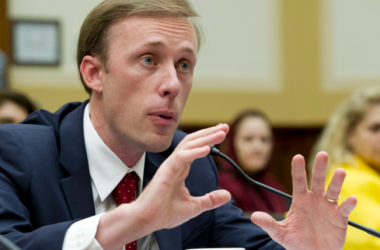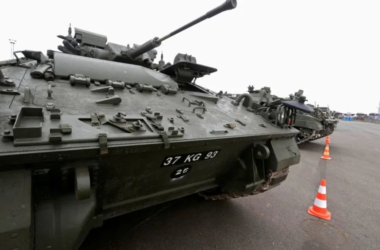As the European Union gears up for the next five years, the competition to secure top economic roles within the European Commission has turned into a high-stakes race. The political elites of Europe are positioning themselves to gain influence over the continent’s economic direction, with many vying for positions that will shape everything from industrial policy to budget allocation. But only a select few will get the chance to take the reins, as Commission President Ursula von der Leyen faces the challenging task of selecting the right candidates.
The importance of securing an economic portfolio cannot be overstated. These positions hold the key to managing the EU’s industrial policy, budget, financial regulation, and regional spending, which are crucial in navigating the bloc’s economic challenges. With an August 30 deadline looming for candidates to submit their applications, von der Leyen will soon begin the arduous process of interviewing and selecting those who will help steer the EU’s economic future.
Key Contenders in the Race
Magnus Brunner, Austria: A seasoned finance minister and skilled tennis player, Brunner is known for his crisis management during Austria’s inflation and energy crises. However, his reputation is mixed, with critics arguing he was too liberal with subsidies. His background in both the public and private sectors makes him a strong contender for an economic role.
Tomaž Vesel, Slovenia: Slovenia’s nominee brings a wealth of experience in public procurement and budget administration. Vesel’s track record includes chairing FIFA’s independent audit during a corruption scandal and navigating Slovenia’s pandemic response. Despite past tensions with political figures, Vesel’s expertise could make him a valuable asset to the Commission.
Raffaele Fitto, Italy: Tasked with managing Italy’s substantial share of the EU’s post-COVID recovery fund, Fitto’s performance has been under scrutiny, with concerns over the slow pace of fund allocation. However, his experience in handling large-scale EU funds positions him as a candidate for broader European financial oversight.
Piotr Serafin, Poland: A trusted ally of former European Council President Donald Tusk, Serafin’s deep understanding of EU processes and his diplomatic finesse make him a strong candidate for the budget portfolio. His ability to navigate complex political landscapes could give Poland a stronger voice in Brussels.
Wopke Hoekstra, Netherlands: Known as “Mr. No” for his firm stance on budgetary discipline, Hoekstra has a reputation for opposing pooled EU debt. While his fiscal conservatism has earned him both respect and criticism, his experience as finance minister and his focus on budgetary rigor make him a key figure in the competition.
Michael McGrath, Ireland: The former Irish finance minister is eyeing an economic portfolio, though securing one may prove difficult given Ireland’s recent hold on the financial services post. McGrath’s experience in establishing a sovereignty fund to address demographic and environmental challenges demonstrates his forward-thinking approach.
Jozef Síkela, Czech Republic: With a background in banking and a current role as industry and trade minister, Síkela is interested in portfolios related to the internal market or competition. His extensive experience in the financial sector could be an asset as the Commission tackles economic and trade challenges.
The Challenges Ahead
Von der Leyen faces the complex task of balancing individual qualifications with the need for geographical representation and political harmony within the EU. The structure of the Commission itself may also see changes, with discussions about merging portfolios and reassigning directorates to streamline operations.
As these candidates position themselves for influential roles, the future of the EU’s economic policy hangs in the balance. The decisions made in the coming weeks will not only determine who gets to “strut their stuff” in the Commission but will also shape the economic landscape of Europe for years to come.








